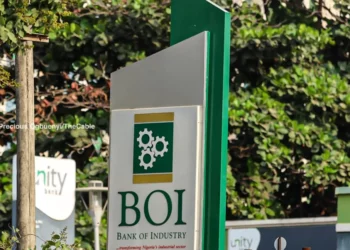Experts have urged corporate organisations on the critical need for thorough due diligence in corporate appointments, especially for key roles.
Speaking at a management training conference in Abuja recently, a management consultant in Abuja, Charles Ojo, said the case of Tinuade Sanda, former CEO of a prominent Nigerian electricity distribution company, serves as a stark reminder of this necessity.
According to him, Sanda’s dismissal raised concerns about corporate integrity as investigations revealed discrepancies in her claimed academic credentials.
He said that Sanda’s dismissal from her position as the MD/CEO of the company was accompanied by allegations of questionable academic claims. He said, ‘‘Claims of holding an MBA from the University of Edinburgh and an undergraduate degree from Harvard Business School were debunked upon investigation. Furthermore, Sanda’s assertion of a Doctor of Philosophy from ICON University in the Benin Republic was refuted due to credibility issues with the institution.’’
Another expert, Aminu Dauda, emphasized the exposure of questionable credentials, prompting a reevaluation of corporate due diligence processes. He expressed concerns about the implications of misleading qualifications on leadership suitability and the integrity of corporate vetting procedures.
Dauda highlighted broader issues in Benin’s education sector, where institutions are accused of fabricating academic qualifications. He said that a tainted academic record not only damages people’s reputations but also undermines credibility as a mentor, particularly to aspiring leaders.
Meanwhile, a university don, Dr Dayo Oke has urged Nigerian tertiary institutions to remain vigilant against fake degree certificates, particularly from certain foreign institutions. He commended the government’s efforts to prohibit fraudulent foreign universities operating in Nigeria and cautioned against endorsing deceptive practices.
He stressed the importance of upholding educational standards in Nigeria and resisting activities that compromise integrity, despite financial incentives. He warned against tarnishing the reputation of institutions for monetary gains, recounting encounters with agents seeking to exploit universities for unlawful academic endeavors.





